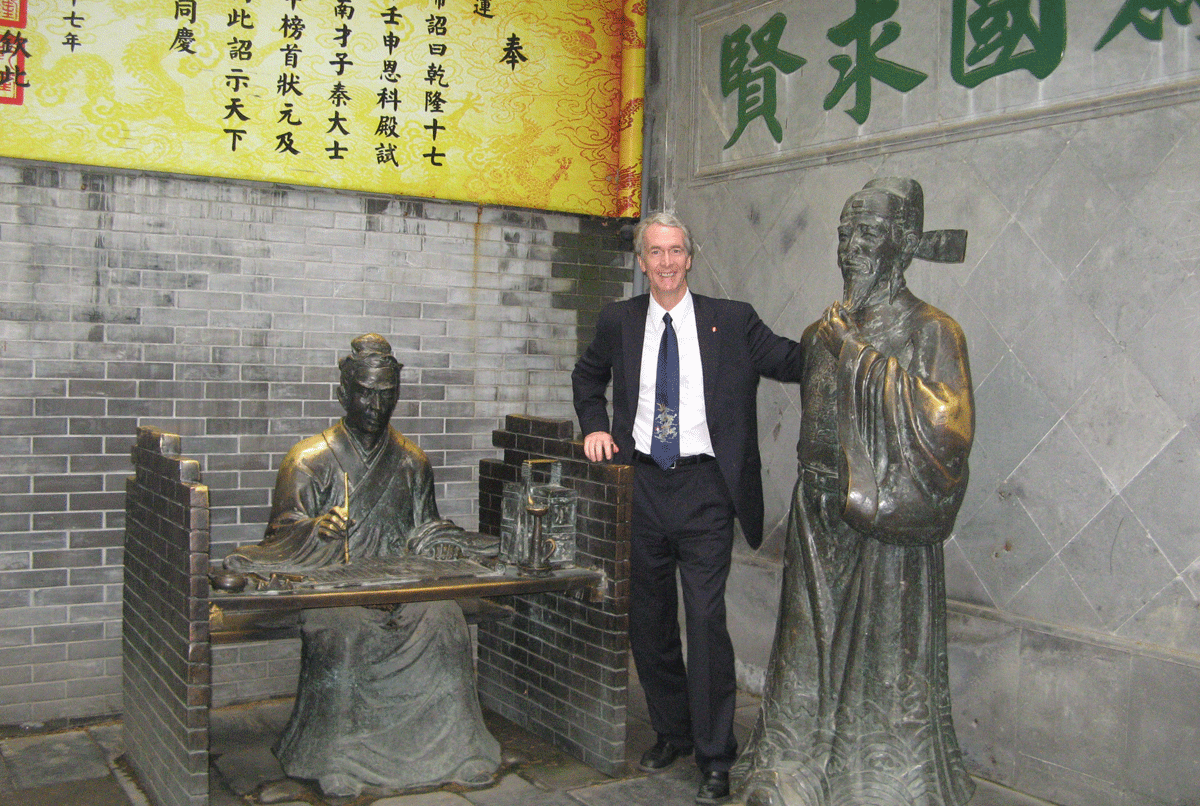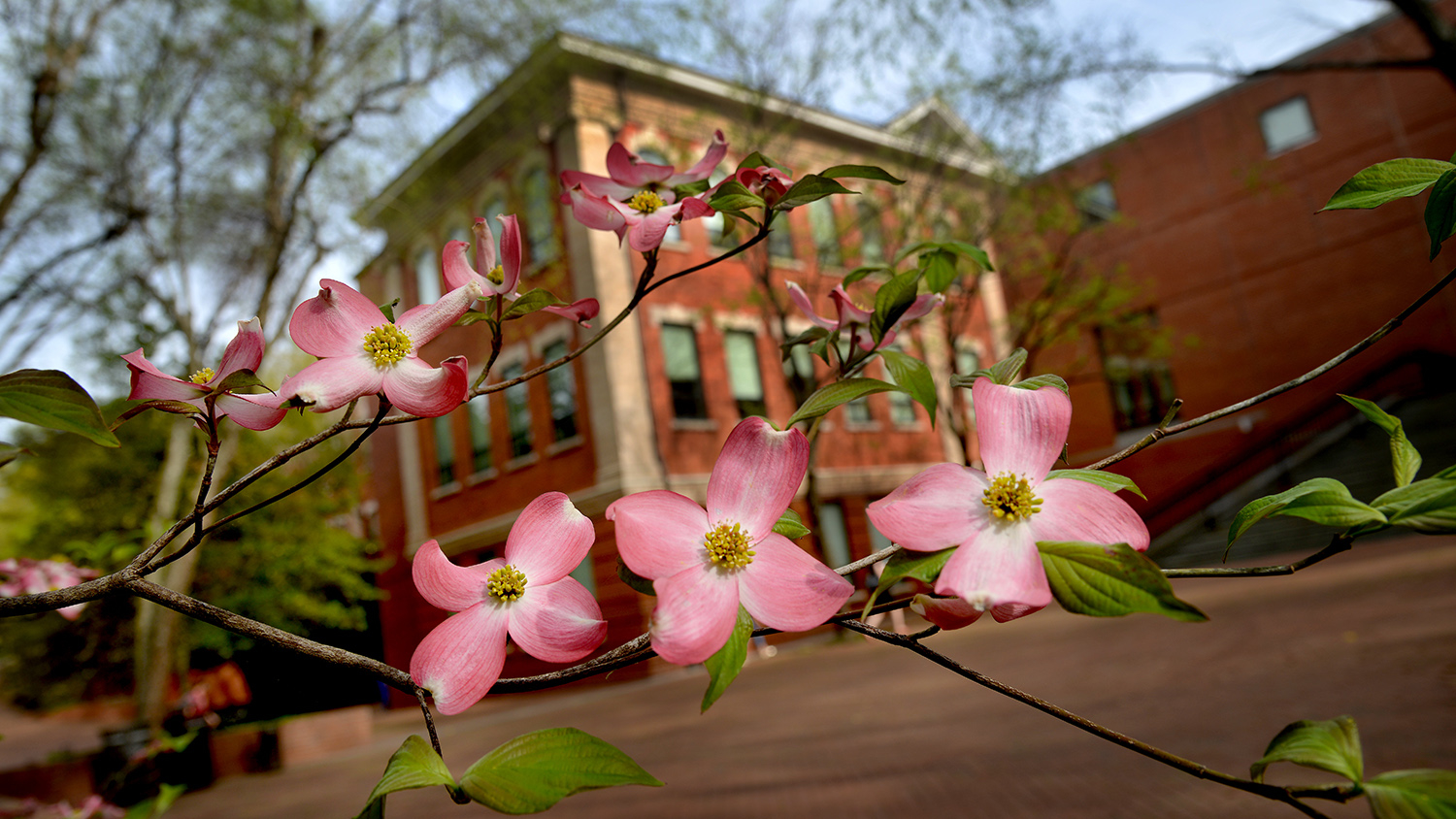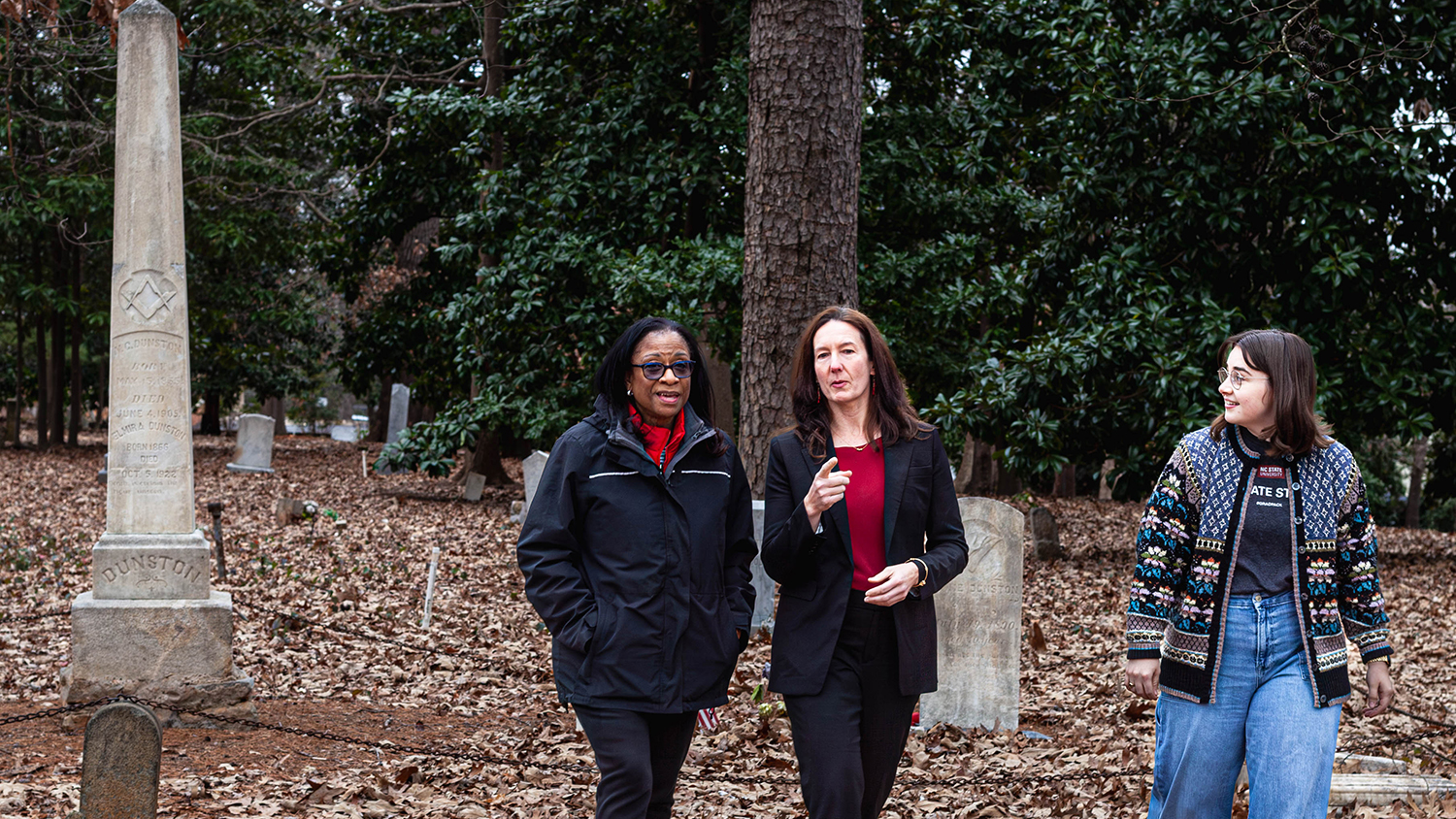The Dean’s Reflections: The Importance (and Limitations) of Speaking English


CHASS Dean Jeff Braden shares these reflections after a recent trip to China:
“A person who speaks three languages is trilingual; two languages, is bilingual; one language, is American.” –a non-American presenter at an international conference
I’ve been fortunate to travel internationally quite a bit, as a professor and in my capacity as dean of NC State’s College of Humanities and Social Sciences. Whenever I do, I find myself with groups of very well-educated colleagues from around the globe whose ability to speak English—even when it is admittedly limited—far exceeds my ability to speak their language.
This point was driven home to me on my second visit to China this May, where I met with representatives of Nanjing Normal University (NNU) to explore collaborations stretching from study abroad programs to student and faculty exchanges to potential collaborative research and degree programs.
The North Carolina Confucius Institute located on the NC State campus pairs us with NNU in hopes that we’ll develop connections surrounding disciplines we both share: English, teaching of English as a second language, Psychology, Foreign Languages, History, Sociology, and more. My job is to share what we’ve got on our campus and in our college, and then listen to the interests and strengths of the NNU representatives to identify viable partnerships that serve our mutual interests.
I do an adequate job of sharing information. People attending my talks usually appear to follow my structured presentations and carefully chosen and paced English without too much difficulty. In a lively talk on this trip, faculty from a nearby school for the deaf joined university students and faculty for a lively give-and-take about whether deaf students should be sent to special schools (the preferred practice in China) or included in regular schools (the preferred American practice).
We established many important understandings in less than 90 minutes, and I shared their sense of new learning and curiosity after our exchange. However, our “conversation” was mediated by a professor who listened to what I said, paraphrased the content for the audience, and translated their responses back to me. It created a cumbersome if ploddingly effective vehicle for mutual understanding.
I was more disappointed in my inability to expand my conversations beyond the academic bubble during my travels in China. There were a few exceptions: a taxi driver and I laughed over Arnold Schwarzenegger as a Hollywood action star and controversial governor. Another person who had helped me find a specific shop was delighted when I managed to convey an invitation for “pijou” (beer) in thanks for his efforts.
The moments where we shared family photos, information about our children, and questions about politics were ones that I cherish—in large part because they were so rare. I didn’t have the chops to hold up my end of the bargain.
The wry observation at the top of this column notes the exceptionally lingua-centric nature of Americans. And I do cringe when I travel in a non-English speaking country and hear my compatriots simply say things slower and louder with the full expectation they should be understood.
We can—and we will—do better, so our students don’t simply visit another country and stay inside the bubble of familiar faculty teaching subject matter that is provided entirely in English. We need to extend our efforts not just to our students—but also to our own faculty and staff as well.
I’m renewing my commitment to helping our campus community acquire skills to more directly interact with a world that increasingly feels like a global village. We need to experiment with and expand opportunities for all to acquire enough language skills so that they can travel to other countries and live—even if not terribly fluently—outside the bubble.
In those rare moments where we unexpectedly connect and share insights with those we meet outside our own culture, we build our competence to partner with others around the globe. In the process, we advance our understanding and appreciation for other peoples, cultures, and languages.
- Categories:


